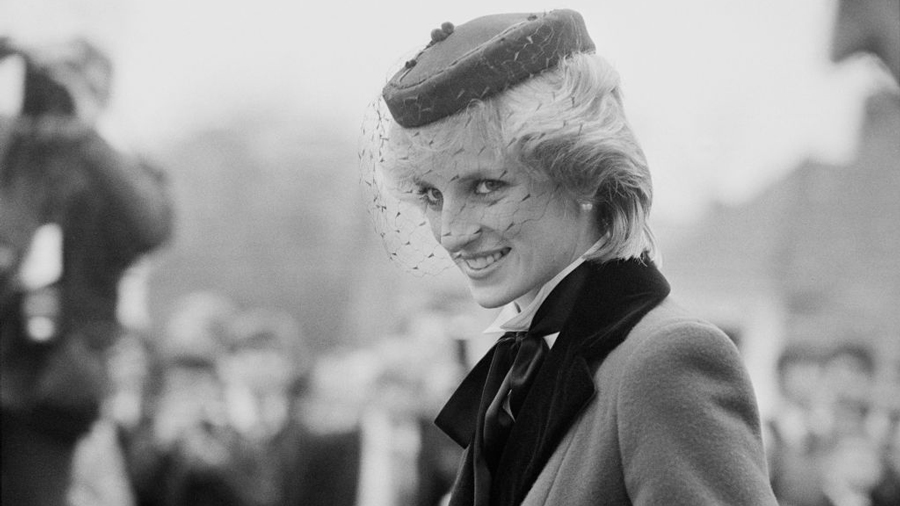Next year will mark the 25th anniversary of Princess Diana’s death, but, sadly, she is not being allowed to rest in peace. I enjoyed going on royal tours with Diana and Charles, but very early on I realized that being a full-time royal reporter is even more dangerous than becoming a war correspondent. Royal stories are circulation boosters. There is pressure from editors to come up with “scoops” at any cost, which is why royal reporters have to resort to quoting unidentified “insiders” and “friends”. The worst thing you can do is get a real scoop. It upsets jealous rivals.
Martin Bashir’s BBC Panorama scoop was sensational — an exclusive interview in which Diana revealed “there were three of us in this marriage”, a reference to Prince Charles’s married mistress, Camilla Parker-Bowles. Bashir was born in London to Muslim Pakistani parents but converted to Christianity in his teens. His fatal, possibly criminal, mistake was to forge bank statements to gain access to Diana via her brother, Charles Spencer (who had refused to give his sister the shelter she requested when her marriage was under strain). Prince William condemned Bashir following last week’s damning report by former judge, Lord Dyson.
There were two other Pakistanis in Diana’s life — the heart surgeon, Hasnat Khan, whom she considered marrying at one stage. And Diana’s friend, Jemima Khan, who took a salwar-clad princess to Pakistan to meet her then husband, Imran Khan, to see if an English-Pakistani marriage might work. Hasnat’s mother firmly quashed the idea. The BBC’s current director general, Tim Davie, has said that he will not broadcast Bashir’s Panorama interview in full again. But I am sure it will figure in a future Netflix drama. Like Marilyn Monroe, Diana, only 36 when she died, will forever be young and beautiful.
Best kept secrets
The author, Andrew Lownie, would be perfect for a literary festival in India. He is the author of The Mountbattens: Their Lives and Loves; the last British Viceroy of India and his wife, Edwina, had an open marriage. Lownie has been telling me about his protracted legal battle with Southampton University, which bought the diaries and letters of the Mountbattens but insists on keeping them secret, especially the material from 1947 and 1948, dealing probably with India and Pakistan and possibly Edwina’s relationship with Nehru. The Cabinet Office is behind the ban, although Lownie also detects the influence of the royal family.
Lownie, who has spent £250,000 of his own money on his legal battle, says he suspects “Edwina’s letters and diaries will be more revealing, charting first reactions to Nehru and other Indian leaders, when and where she met Nehru, comments on political issues. It may reveal details of how they were not always impartial, information about Partition and the massacres. It may show their states of mind [in] 1947-1948 — they had been about to divorce and she was having a difficult menopause. There are rumours of him having an affair with an Indian Prince.”
Home away from home
Why are Tamilians so good at mathematics and science? It’s a question I put to Sir Shankar Balasubramanian, a professor of chemistry at Cambridge University, after his visit to Helsinki where he and Sir David Klenerman were awarded the one-million euro 2020 Millennium Technology Prize for their “development of revolutionary DNA sequencing techniques”. This will help with everything from cancer to Covid-19. Balasubramanian reckons it has more to do with “culture” than anything in the DNA. “I was born in Madras, now Chennai, in 1966,” he says. “I was nine months old when my parents migrated to the UK.”
As an Indian he is not lonely at Trinity College, where Balasubramanian is a Fellow. “Of course, Venki (Nobel Laureate, Venkatraman Ramakrishnan) is at Trinity as well. Amartya Sen (also a Nobel Prize winner) is also a Fellow. (The Indian mathematical genius, Srinivasa) Ramanujan was at Trinity (from 1914-1919). Being in Cambridge and being in Trinity, you have a lot to live up to if you’re an Indian because there have been many great Indian scholars.”
New ventures
Normally when I talk to Mallika Basu, it is either about her cookbooks or her grandfather, Jyoti Basu. But this time she is promoting an enterprising venture by the young gun, Aadit Shankar, who read PPE at Oxford, abandoning a career in banking. Last week he started selling stuffed parathas (choice of potato or keema) with pickle and yoghurt at a counter at Selfridges. Aadit says: “My dad is from Bangalore, mum’s Punjabi, from Delhi. She’s a big influence on the recipes.”
Footnote
The Shakespeare plays you do at school stay with you. In my case, it was Julius Caesar in Patna and Twelfth Night in London. Now, owing to the Black Lives Matter movement — May 25 marked the first anniversary of George Floyd’s murder — even the Bard’s plays are under scrutiny. “Anti-racist Shakespeare” seminars are being held at the Globe theatre, built to resemble the Elizabethan venue for which the Bard wrote his plays. A Midsummer Night’s Dream endorses that “white is beautiful, that fair is beautiful, that dark is unattractive,” said actor and seminar speaker, Aldo Billingslea, making the play problematic from the first line, “Now, fair Hippolyta”. The project is especially relevant for a country like India where there is a premium on “fair complexioned brides” and a ready market for skin lightening creams.










